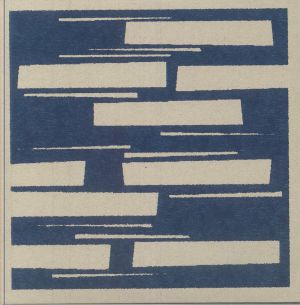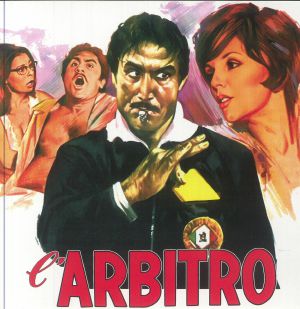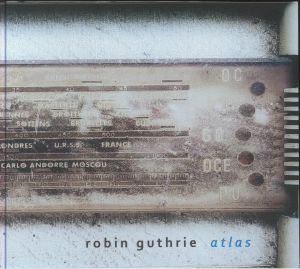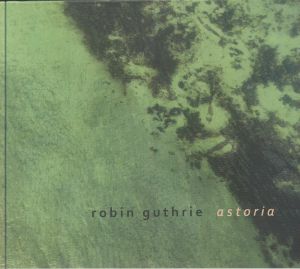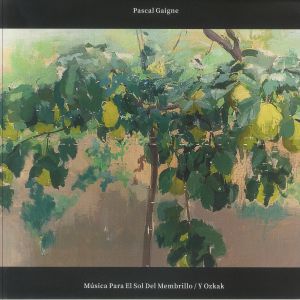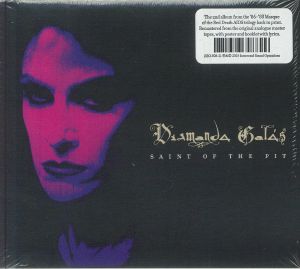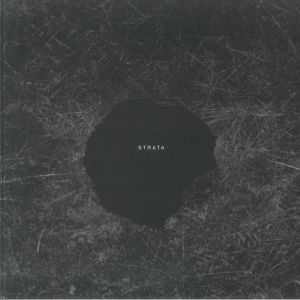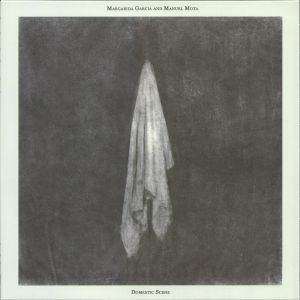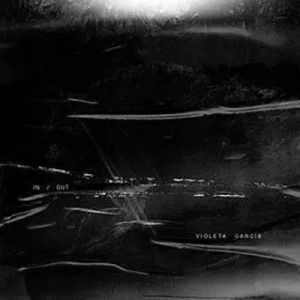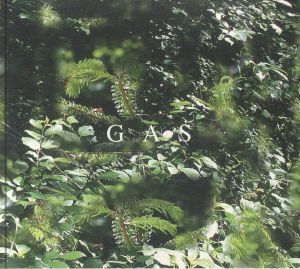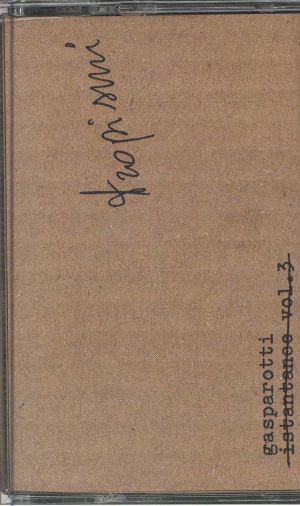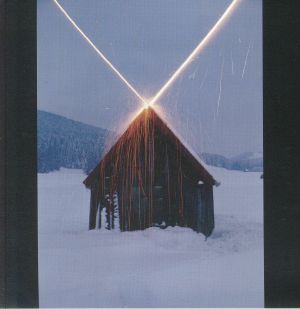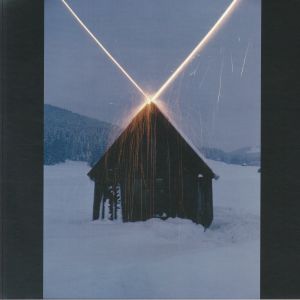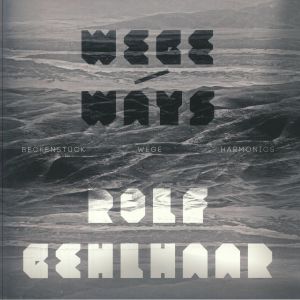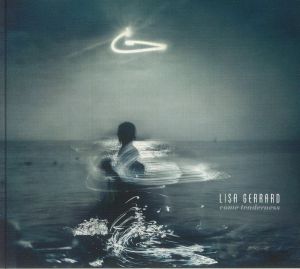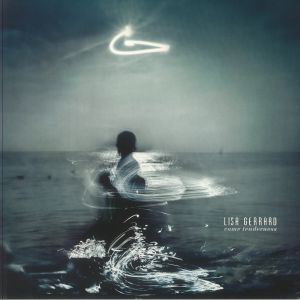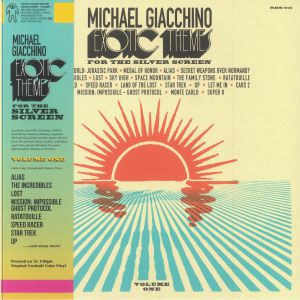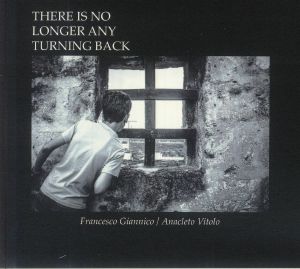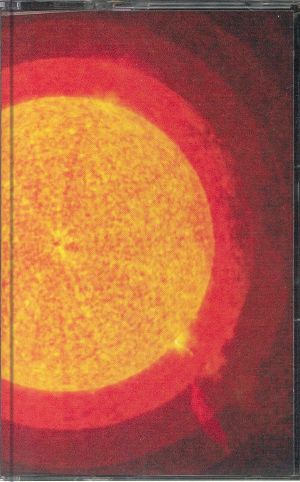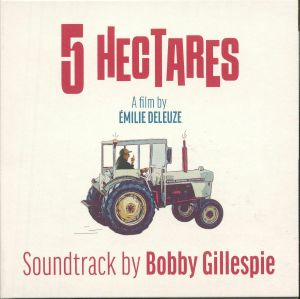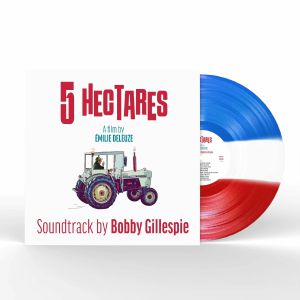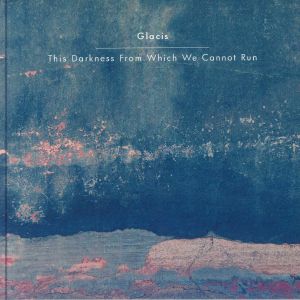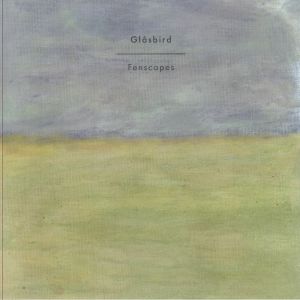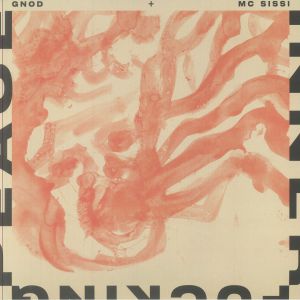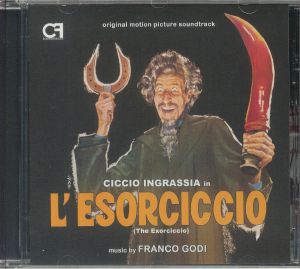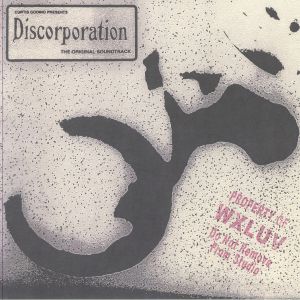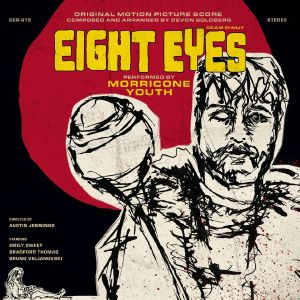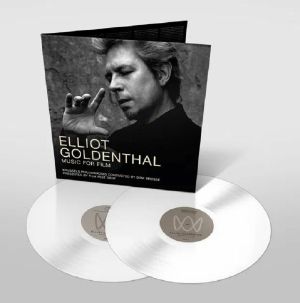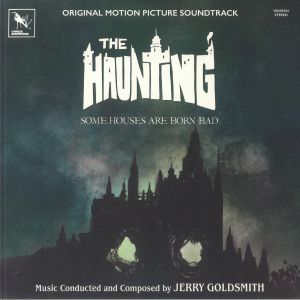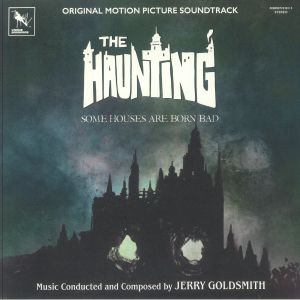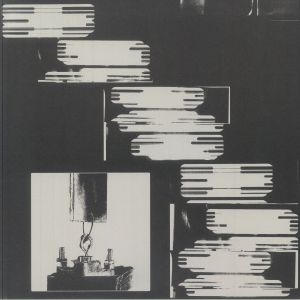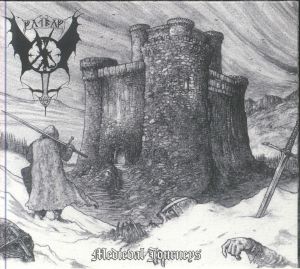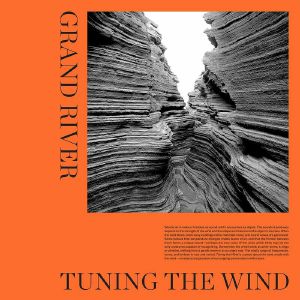Filter
Genre
Stock
Artist
Featured
Release Title
Price
Tags
Back catalogue: Classical
Juno's full catalogue of Classical
Singles
Up (15th Anniversary Celebration) (limited custom shaped 10" picture disc)
Cat: D 004528411ST01. Rel: 26 Sep 24
Intérprete: Manu Archeo
in stock $69.12
Recollections I-II (7" limited to 100 copies)
Cat: IRIS 014. Rel: 11 Dec 24
in stock $14.11
L'Arbitro (green vinyl 7")
Cat: TTEP 14G. Rel: 06 Dec 24
in stock $29.58
Review: Robin Guthrie's Atlas is a four-track EP showcasing new instrumentals that gently reintroduce listeners to his distinctive world. Known for shaping genres with his production and signature guitar sounds, Guthrie famously co-founded and produced for Cocteau Twins. With over four decades of musical influence, he's produced, remixed, and collaborated across various projects, from instrumental albums to movie soundtracks and Atlas serves as a tantalising preview of what's to follow later this year, namely more of Guthrie's evocative sounds that will no doubt continue his legacy of pushing boundaries.
… Read moreIntérprete: Juno Recommends Ambient/Drone
in stock $10.79
Review: Cocteau Twins' musical mastermind Robin Guthrie has produced some terrific solo records over the course of his career, frequently delivering material that joins the dots between ambient, ethereal soundscapes, shoegaze and the more immersive end of the soundtrack spectrum. 'Astoria' is the latest volume in the Scottish multi-instrumentalist and producer's ongoing EP series (its predecessor, 'Mountain', dropped in September). It's another typically gorgeous and enveloping affair in which effects-laden guitar motifs, gaseous ambient chords, gentle rhythms, ghostly aural textures and slowly shifting melodies combine to create instrumental sound worlds of rare beauty (if not sonic clarity - Guthrie's use of reverb and delay is liberal, which adds to its atmospheric nature but adds extra layers of attractively wide-eyed haziness).
… Read moreIntérprete: Juno Recommends Ambient/Drone
in stock $10.79
Álbumes
Cat: JIAOLIU 2407. Rel: 13 Mar 25
in stock $39.80
Review: Gajek's latest album takes his experimental sound even further than ever before. It finds him blending pop and jazz with distorted dub textures all inspired by memories of the Berlin Wall falling and old West German gabber. The album warps familiar sounds into something entirely new and tracks like 'Dig It All Up Again' mix deep bass with glitchy guitar and vocal snippets, while 'Until It Was Nomore' loops strange melodies over abstract pads. At times, it hints at Krautrock influences, but the result is more freeform and immersive. This is an album best experienced in full, multiple times, so its many layers are revealed over time.
… Read more in stock $27.92
Pom Poko: Image Album (LP + insert with obi-strip)
Cat: TJJA 10064. Rel: 05 Nov 24
Review: Pom Poko, also known as The Raccoon War, is a charming animated comedy-drama from Studio Ghibli that premiered on July 16, 1994. As the first feature film created at Ghibli's new Koganei studio, it marks the directorial debut of Isao Takahata. The story follows a group of tanuki (raccoon dogs) who band together to defend their forest home from encroaching urban development. The film's title, Pom Poko, refers to the traditional sound made by tanuki drumming their bellies, highlighting the rich folklore and cultural references woven throughout its enchanting and emotional narrative. The accompanying Pom Poko (Image Album), envisioned by Takahata, showcases an exploration of various facets of Japanese music, with raccoons as the film's central characters. This impactful soundtrack enhances the film's themes and moods, providing a delightful auditory experience that resonates with viewers. Overall, Pom Poko stands as a testament to Ghibli's ability to blend whimsical storytelling with profound environmental messages, making it a cherished addition to the studio's illustrious repertoire.
… Read more in stock $30.14
Cat: ISO 008. Rel: 15 Oct 24
in stock $12.99
Saint Of The Pit (LP + poster)
Cat: ISO 008LP. Rel: 23 Oct 24
Review: The 1986 sonic pentad by Diamanda Galas, Saint Of The Pit, is the second of two records forming the devised, pestilent occult rite - in her terms, the "plague mass" - known as the Masque Of The Red Death. In clairvoyant dialogue with the first part (The Divine Punishment), both records, in symbiosis, are said to possess an innate correctitude, with saintly playback "possible at maximum volume only." When we oblige by Galas' command, we find ourselves thickly immersed in the kind of sonic esoterics that only the most adept of oneiromancers might be able to swallow and integrate into their mantic: waspish whispers, dulotic dirges, heathen hums. Galas' episcope is a dissenting, idolatrous projection in sound and vision, with 'Artemis' and 'Deliver Me' spanning red-robed, sectarian vocal operatics, not to mention their backing, low-noted, open piano chord strikes. The *eschaton* of the record is, of course, is its quintessential fifth star-point: 'Cris D'aveugle (Blind Man's Cry)', on which Galas, the occult visionary, profanes the lyrical votive candle wax with blasphemous talk of nailed eyes and desecrated caskets.
… Read moreIntérprete: Juno Recommends Experimental
in stock $28.48
Strata (LP limited to 300 copies)
Cat: ZAM 041LP. Rel: 21 Mar 25
in stock $20.74
Domestic Scene (limited LP + MP3 download code)
Cat: FDTB 762. Rel: 22 Jul 24
in stock $36.78
in stock $25.99
Intérprete: Juno Recommends Ambient/Drone
in stock $16.87
Intérprete: Juno Recommends Experimental
in stock $20.19
Review: We Have Dozens of Titles by Gastr Del Sol is a treasure trove for fans, offering a glimpse into the experimental post-rock pioneers' journey from their Bastro roots to their groundbreaking work as Gastr Del Sol. This collection, curated from their 1993-1998 recordings, shows their evolution into sonic explorers, pushing the boundaries of post-rock with influences from musique concrete and free improv. The unearthed CBC recording from Festival International de Musique Actuelle de Victoriaville in 1997 is a highlight, featuring ethereal versions of familiar tracks like 'The Seasons Reverse' and 'Blues Subtitled No Sense of Wonder.''The live rendition of "Onion Orange' is a revelation, with Jim O'Rourke's kosmische synth waves intertwining seamlessly with David Grubbs' intricate guitar work. Additionally, the inclusion of rarities like 'The Harp Factory On Lake Street' and tracks from various compilations adds depth to the collection. Each track, whether a live performance or a studio recording, has been meticulously mastered or remastered by O'Rourke, enhancing the listening experience. We Have Dozens of Titles not only fills in gaps in Gastr Del Sol's discography but also exemplifies their innovative approach to music-making.
… Read more in stock $30.14
Review: Gastr del Sol might have gone their separate ways some 25 years ago, but they have recently taken the time to dig back into their fine archives. As a result they now serve up an alternate view of their superb, boundary breaking and genre busting run between 1993 and 1998 with a title box set, We Have Dozens Of Titles, on Drag City. Returning like a reverberating bolt from the blue, this album reignites the essence of the group and immerses listeners back into the whirlwind of their transformative era. It comprises previously uncaptured studio recordings and meticulously preserved unreleased live performances that all offer a captivating glimpse into the band's journey.
… Read more in stock $74.38
in stock $45.89
in stock $11.33
Review: Australian vocalist and modern classical composer Lisa Gerrard presents Come Tenderness, a compilation inspired by the healing essence of water. Personally curated by Golden Globe winner Lisa herself, this album packs in ten of her most powerful tracks, all newly mastered, alongside the fresh track 'Whispers.' Each piece takes on renewed depth within this cohesive collection and the record is enriched by striking artwork from Nigel Grierson. Known for her collaborations, Come Tenderness features work with Daniel Johns, Astrid Williamson and Patrick Cassidy, all elevated by Lisa's ethereal vocals from a career that spans from her beginnings with Dead Can Dance to recent scores for Dune.
… Read more in stock $28.48
Chess Of The Wind (Soundtrack) (LP + booklet)
Cat: MRI 207LP. Rel: 13 Jun 24
Review: There are back stories, and then there's Chess of the Wind. Sheila Gharachedaghi's remarkable movie soundtrack wouldn't be here today if it weren't for the fact the movie itself - a 1976, pre-revolutionary Iranian queer-gothic-class-horror masterpiece - had been banned in its homeland and presumed lost forever, until a copy turned up in an antique shop. That was 2014, and six years later it was re-released, having benefited from restoration by the Martin Scorsese Film Foundation. A remarkable insight not just into a society long since lost, but its pitfalls and problems, to accompany this Gharachedaghi combines classical Persian instrumentation and atonal dissonance, traditional melodies and experimental moods for a score that's just as much of a landmark.
… Read more in stock $29.30
Review: Dark Entries returns with Remote Dreaming, the ambient masterpiece by The Ghostwriters aka Philadelphia duo Buchla master Charles Cohen and multi-instrumentalist Jeff Cain, with proceeds benefitting SOSA (Safe from Online Sex Abuse). Formed in 1971 as Anomali, the duo adopted their Ghostwriters moniker and blended improvisation with structured composition. Following their debut Objects in Mirrors Are Closer Than They Appear, they crafted Remote Dreaming over nine months across various studios. Cain played electric and acoustic pianos, the Juno 106, and the Mirage sampler, while Cohen used his Buchla 200 Series. This double LP has been freshly remastered and includes five additional tracks, four of which are previously unreleased.
… Read more in stock $36.48
Star Trek: Into Darkness (Deluxe Edition) (Soundtrack) (limited translucent red blue & yellow vinyl 3xLP + booklet in die-cut slip-case)
Cat: VAR 1592441. Rel: 01 Oct 24
Review: Star Trek has been on a tumultuous ride over the years. To paraphrase Wayne Campbell, of Wayne's World fame, in many ways The Next Generation was superior to the original series, but will always struggle to match the recognition of its source material. More recent shows in the franchise looked to expand the viewer base, following in the wake of the saga's modern films, but in doing so kind of lost the friendly, campish mild peril we love this universe for. Star Trek: Into Darkness was a case in point - it's not fun, it's not light, it's not particularly thoughtful. As a movie, it lives up to the promise of darkness. In terms of how this translates onto the score, expect seriously moody and atmospheric big screen compositions, rather than the jaunty soundtracks that once defined this institution.
… Read morein stock $80.88
Star Trek Into Darkness (Soundtrack) (Deluxe Edition) (clear vinyl 3xLP + booklet in die-cut slip-case)
Cat: 725422 9. Rel: 05 Sep 24
in stock $71.62
Exotic Themes From The Silver Screen: Volume One (gatefold 'tropical cocktail' light orange marbled vinyl 2xLP + insert with obi-strip)
Cat: MBM 16LP. Rel: 12 Sep 24
in stock $46.44
Next Goal Wins (Soundtrack) (neon pink vinyl LP with obi-strip)
Cat: MBM 20LP. Rel: 14 Nov 24
in stock $39.80
Cat: SPS 2490. Rel: 13 Dec 24
in stock $9.89
Murals For Immersion (cassette)
Cat: SAUNA 081CS. Rel: 23 Jul 24
in stock $19.89
in stock $8.75
5 Hectares (Soundtrack) (limited blue white & red striped vinyl LP + MP3 download code)
Cat: YT 002. Rel: 15 Aug 24
Review: "What causes a man who has everything to jeopardise his comfort, career and relationship?" High brow movie streaming service MUBI has a habit of asking difficult questions of its audience, although the answer in this case is actually very simple - 5 Hectares of land in Limoges, France. Emilie Deleuze's delightfully quirky - and therefore thoroughly human and honest - comedy is about just that; one guy's dream of owning a plot in stunning serenity, and what he's willing to lose for it. Bobby Gillespie might be something of an outsider choice to score the flick, if it didn't make perfect sense to draft one of indie rock & roll's true eccentric enigmas. Best known as the voice and front face of the mighty Primal Scream, what's here isn't really that, but it's just as broad, varied and forward thinking. From loopy jazzy beats to strange chants, whispered balladry and compressed lo-fi hip hop.
… Read more in stock $19.84
This Darkness From Which We Cannot Run (CD limited to 100 copies)
Cat: WLR 171. Rel: 17 Oct 24
in stock $10.79
Fenscapes (heavyweight vinyl LP limited to 100 copies)
Cat: WLR 172. Rel: 22 Jan 25
Review: Glasbird is the project of British composer Harry Towell, owner of the ambient label Whitelabrecs. Beginning in 2018, he anonymously created A Sonic Expedition, an eight-album series inspired by remote locations like Greenland and Siberia. In 2024, Harry revealed his identity in an interview and then announced Fenscapes, an album inspired by the South Lincolnshire Fens near his village. These flat, marshy landscapes are rich in biodiversity and shaped his compositions. Harry explored local fen roads, observing wildlife and open vistas for inspiration and it all plays out in a bucolic, widescreen, immersive record of the highest quality.
… Read more in stock $29.85
Inner Fucking Peace (LP + insert + MP3 download code)
Cat: LAUNCH 371. Rel: 31 Oct 24
Review: GNOD, the ever-evolving psychedelic noise-rock collective, returns with Inner Fucking Peace, a transformative collaboration with Portuguese vocalist MC Sissi. Known for constantly reinventing their sound, GNOD delivers an album that pushes new boundaries. Comprised of eight tracks for voice and electronics, this release merges experimental textures with Sissi's stream-of-consciousness Portuguese lyrics. The album showcases a broad sonic palette, from the minimalist tuned percussion of 'Stop' to the ominous electronics and crashing industrial drums on 'Get Out', reminiscent of GNOD's touring partners Harrga. Tracks like 'Tea & Eggs' delve into reggaeton-infused minimal synth, while 'Flute Theme' centers around chopped and screwed woodwind arrangements. MC Sissi's contributions, often improvised, bring an emotional depth to the album. Her irate vocals, mournful crooning and playful autotune add a new dimension to GNOD's industrial beats and spaced-out synths. With tracks ranging from hypnotic hand drum workouts to the gloom-laden 'Cannela Crematoria', Inner Fucking Peace marks another bold, unpredictable chapter in GNOD's extensive discography, leaving fans eager for what's next.
… Read more in stock $23.78
The Gallows Pole: This Valley Will Rise (Soundtrack) (Record Store Day RSD 2024) (limited gatefold 'molten metal' black & orange swirl vinyl LP + 7")
Cat: LAUNCH 350. Rel: 07 May 24
Intérprete: Juno Recommends Leftfield, Juno Recommends Experimental
in stock $30.96
God Bless The Machine Dancouga BGM Collection Vol 1 (LP + insert)
Cat: MHJL 310. Rel: 17 Oct 24
in stock $39.26
in stock $20.74
in stock $28.19
Eight Eyes (Soundtrack) (limited clear & red swirl vinyl LP + MP3 download code)
Cat: CCR 015. Rel: 06 Dec 24
in stock $32.07
Music For Film (gatefold white vinyl 2xLP)
Cat: SILLP 1775. Rel: 10 Mar 25
in stock $42.58
The Haunting (Soundtrack) (reissue) (gatefold black, gold & grey marbled vinyl 2xLP)
Cat: 888072 543461. Rel: 03 Oct 24
Review: The 1999 supernatural horror film The Haunting, gets a new life with its first-ever vinyl release of Jerry Goldsmith's unsettling score. This Deluxe Edition 2-LP set, featuring a Black/Gold/Gray swirl design, is adorned with fresh artwork by Sina Grace, adding a visually striking touch to the bone-chilling music. Goldsmith, a legendary composer with an extensive resume, was the ideal choice to create the film's soundscape. His music goes beyond typical horror tropes, weaving a tapestry of eerie, atmospheric tension that enhances the film's haunted narrative. Known for his work on iconic films like Alien, Chinatown, Star Trek and Poltergeist, Goldsmith brought his deep understanding of mood and emotion to The Haunting, crafting a score that feels both eerie and sophisticated. The score's haunting melodies and unsettling rhythms create a feeling of lurking danger, perfectly capturing the film's ghostly themes. Critics have praised the soundtrack for its ability to evoke fear and suspense without resorting to cliches. Having this soundtrack on vinyl, brings the soundtrack alive in an elevated way.
… Read more in stock $53.37
The Haunting (Soundtrack) (gatefold translucent green vinyl 2xLP)
Cat: 725381 1. Rel: 03 Oct 24
in stock $38.70
Cat: D 004130701. Rel: 09 Sep 24
in stock $25.43
in stock $17.43
in stock $12.02
Patrick GOWERS / ST PAUL'S CATHEDRAL CHOIR / THE GABRIELI STRING QUARTET / THE WREN ORCHESTRA OF LONDON
Cat: LPJAY 1334. Rel: 26 Sep 24
Review: The Sherlock Holmes: Granada TV Series (Soundtrack) is being celebrated with a 40th Anniversary DigiMIX Edition, available on vinyl from Jay UK. This release offers fans a beautifully remastered experience of the iconic music that underscored Jeremy Brett's portrayal of the legendary detective. The score, rich with period-appropriate orchestration, enhances the atmospheric and suspenseful tone of the series, making it an essential companion to the on-screen action. The vinyl pressing promises superior sound quality, capturing every nuance of the original compositions. This special edition is not just a nostalgic trip for long-time fans but also a great introduction for newcomers to the series' aural landscape. The packaging itself is a collector's delight, offering a mix of historical insights and stunning artwork. Overall, this 40th Anniversary edition revitalises the classic soundtrack, making it ideal for fans of both Sherlock Holmes and exceptional television music.
… Read more in stock $23.78
in stock $13.83
Review: Grand River's (Aimee Portioli's) fifth studio album (her first after the brilliant In uno spazio immenso, her debut for Caterina Barbieri's label Light-years label) began as an installation in 2022. Having since evolved into multi-channel, 4DSOUND, and stereo formats, the record has bridged every hurdle to live performances it could possibly face. The 36-minute composition is divided into two parts: Portioli recorded various winds and transformed them via layering and pitch adjustments, fashioning the wind itself into an instrument. Going so far as to align the gusts to a 440hz reference and tuning particular instruments to windward passages, Portioli went with the wind, yet still wound up more alive than ever. Wind and synthesizers merge seamlessly, erasing the line between natural and human-made sound; silent until it meets an object, air currents produce an array of tones, from whispers, to roars, to melodies.
… Read more in stock $28.75
Arcana (Soundtrack) (reissue) (Record Store Day RSD 2025) (limited clear red vinyl LP + insert) (1 per customer)
Cat: VMLP 262. Rel: 19 Apr 25
in stock $34.28
in stock $42.54
in stock $38.44

 USD
USD






